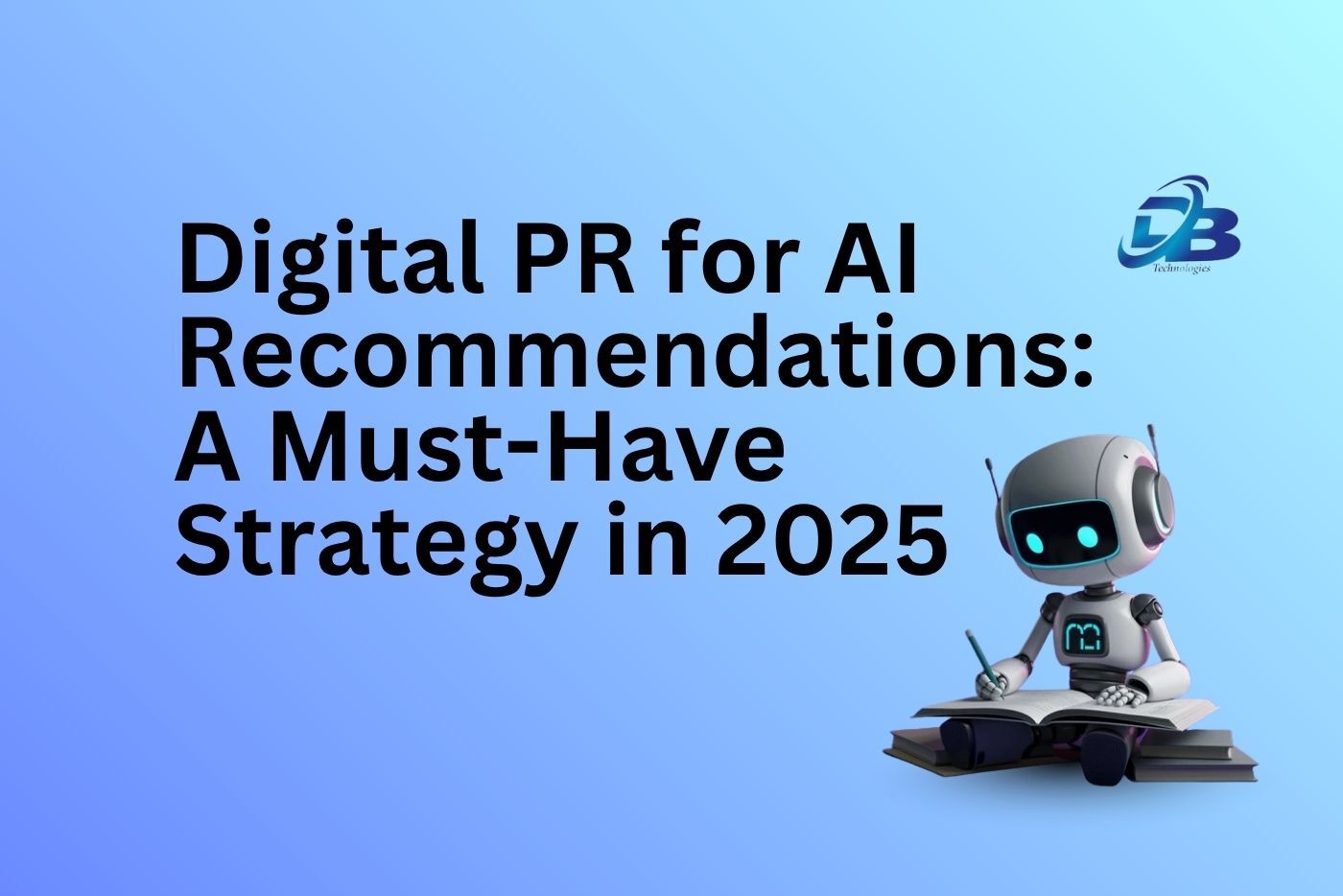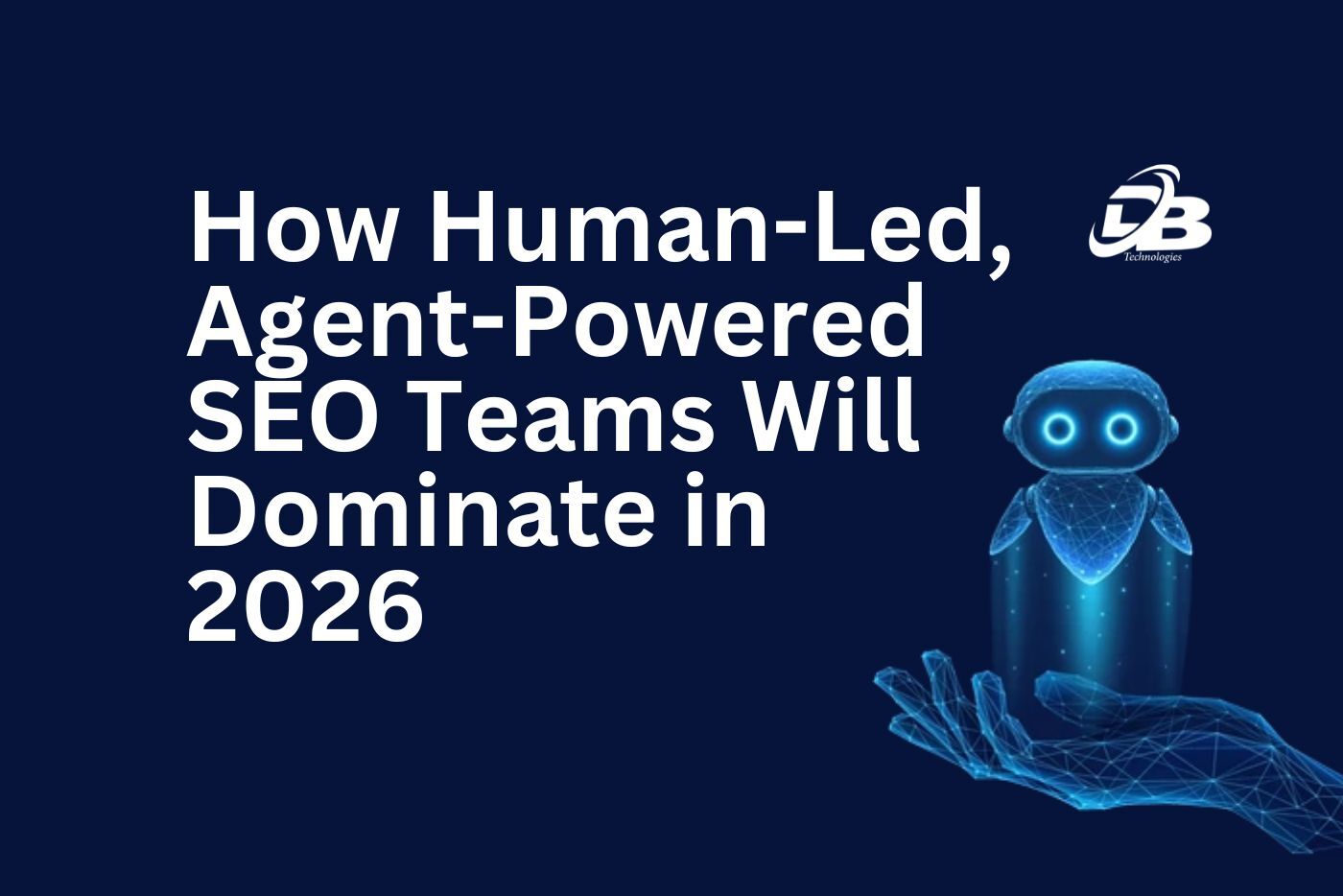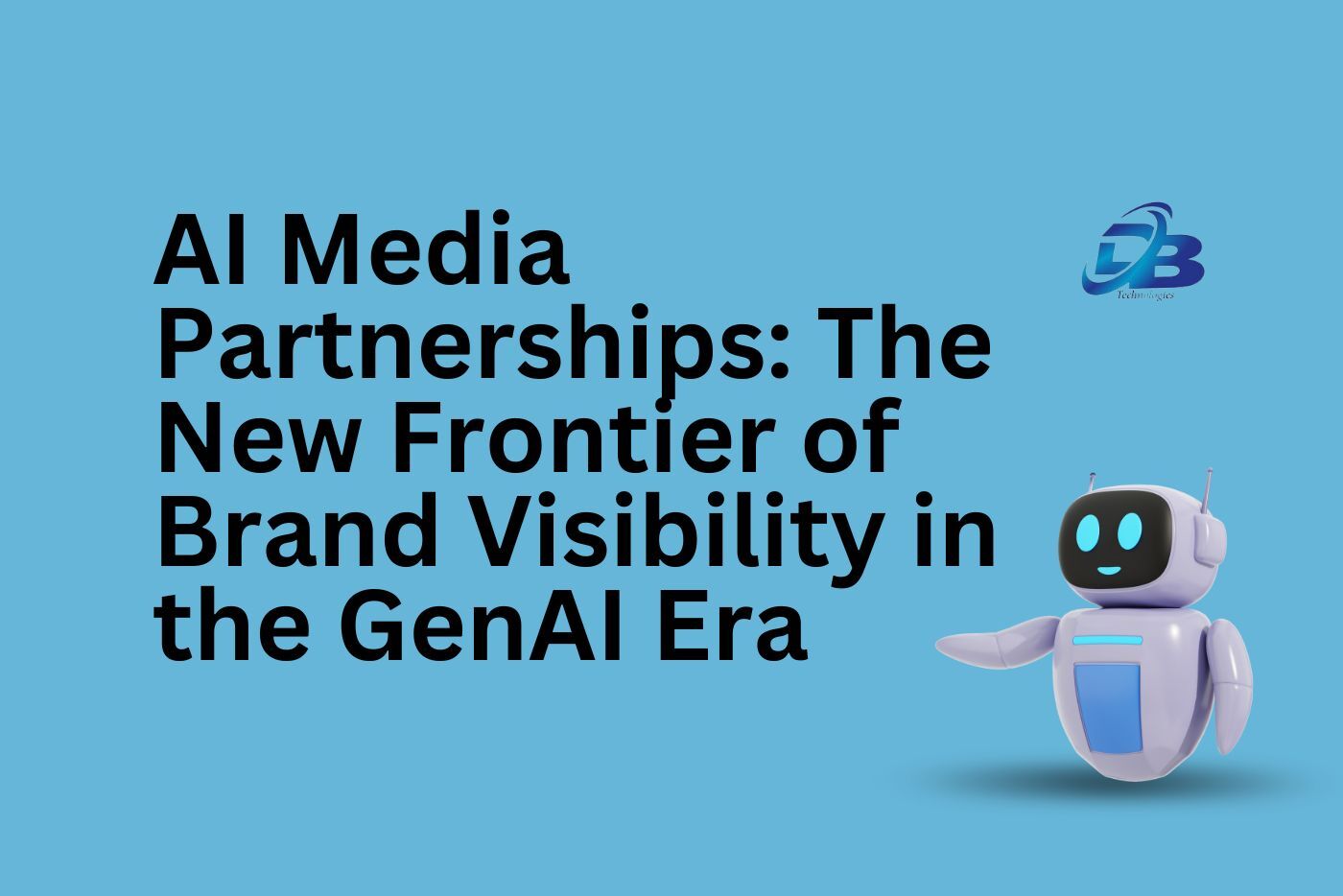
AI assistants often answer user questions by scanning the web. If your brand or business is mentioned in a popular article or list, these AI systems can “learn” about you and suggest you to users Google’s own search lead.
AI thinks a lot like a person and if your business is mentioned in top business lists or public articles, “those kinds of things become useful for the AI to find”.
In practical terms, this means that getting featured online (which is what digital PR does) can make AIs more likely to recommend your brand. For example, if a food blogger includes your cafe in a “Best Coffee Shops” list, an AI helper might notice that mention when answering someone’s question about where to find great coffee.
In short, the digital PR impact on AI recommendations is huge in 2025. Digital PR, the practice of promoting your brand through online media and content not only builds your reputation with people but also helps AI systems find and trust you.
What is Digital PR?
Put simply, digital PR is about getting your brand noticed online. It’s like regular PR (public relations), but via the internet. This is inclusive of many things like, blog , articles, interviews, expert opinion, reviews, podcasts, or social media that mentions your business. The goal is to create brand signals – evidence across the web that your company exists and has value.
There are numerous strategies that digital PR may entail. It could be a data-driven campaign (such as the publication of survey results which reporters will pick-up), reactive PR (reacting to events happening in your sector), expert commentary, product launches, or even addressing unrelated mentions of your business (ensuring that people mention you in the most appropriate way). That is, it is a general term used to refer to any form of strategy that involves reputable sites and media discussing your business.
Traditionally, businesses did digital PR to earn backlinks for SEO (search engine optimization). But in 2025, its role is even bigger. Instead of just chasing links, digital PR also builds brand awareness and authority.
What Are AI Recommendations?
AI recommendations are suggestions given by artificial intelligence systems when users ask questions. For example, when you ask your phone’s voice assistant “What’s the best and affordable digital marketing company in Dubai?”
AI chatbot tries to find an answer by looking at lots of web content. In many cases, these AI tools aren’t just pulling random answers, they actually perform mini web searches or rely on trained data to compile their response.
You can think of it like this: ask a friend for a recommendation, and they might recall what they’ve read or heard about places or products. AI works similarly.
It has “read” a ton of web pages during its training, and it also uses live searches (in Google’s case) to gather up-to-date info. So, if numerous websites (like news sites or trusted blogs) talk about a certain brand or product, the AI is more likely to pick up on that when answering a related question. In effect, getting mentioned online means your name is in the AI’s “memory bank.”
By 2025, these AI-powered searches are everywhere. Google’s AI Overviews and chatbot features, plus assistants on phones and smart speakers, are handling a huge chunk of search queries.
Why Digital PR is Essential for AI in 2025
Here’s the big insight: Digital PR helps AIs notice your brand. In other words, AI looks for signals of trust just like a human does – if many websites mention you, the AI treats that as a vote of confidence.
A study by digital marketing pros found that AI search is now geared towards familiar brands with strong online presence.
In fact, one industry guide bluntly advises companies to “double down on digital PR” if they want to be recommended by AI-based systems. This doesn’t mean AI is only going to suggest big names, but it does mean niche and small brands need to work on visibility. Even if you have a great product, if nobody’s talking about you online, AI might overlook you.
Think of it from the user’s perspective: if you ask an AI assistant for advice (“Hey Siri, what spa should I try?”), the AI checks its digital notebook.
It looks up the query and tries to find where your business shows up. If it sees your spa listed in a local news story or getting rave reviews on blogs, it will be more likely to mention it.
Why it matters now: According to experts, AI-driven search results (like Google’s AI Overviews or answers from ChatGPT) are expected to grow rapidly.
Beside traditional SEO, digital PR is equally important. As one agency put it, AI tools are more likely to recommend brands they recognize and trust, which means digital PR-driven brand mentions matter more than ever.
How Digital PR and SEO Work Together (and Differ) in the AI Era
Digital PR isn’t replacing SEO; but complements it. Traditional SEO best practices remain important. Google still values helpful, clear content on your website.
Creating content that is genuinely useful and easy to understand is still key for being seen by AI (and by people).Google’s ongoing emphasis on E-E-A-T (experience, expertise, authoritativeness, trust) – basically, content quality still rules the day.
However, SEO and AI optimization differ in how queries are phrased. Most folks type keywords into Google (“best SEO agency UAE”), but with AI chatbots they often ask long, conversational questions (“Which SEO agency is best for start ups on a budget?”).
That means your content should aim to answer real user questions clearly, not just stuff one keyword 50 times.
The overlap with SEO is big (good content, fast site, mobile-friendly, these all still matter), but the nuance is in query intent and context. So, think of it as two prongs of the same strategy:
1) SEO/Content Track: Write clear, helpful content on your site targeting likely AI queries. Build useful pages and follow SEO basics to rank well on search.
2) Digital PR Track: Get your brand in external media and top lists so that AI (and Google) knows you exist. Earn mentions on authoritative websites, because each mention is a signal that the AI can pick up.
Digital PR opens the door for AI discovery. For instance, an AI doesn’t magically guess your brand name, it “learns” it from data and the web. If your brand never appears anywhere, AI won’t know to suggest it.
But if your brand is cited in press releases, expert roundups, or even customer reviews, the AI starts to think “Aha, brand X is mentioned in trusted sources, so I should mention it too”. This approach is “not really different from what you would do” as a business, basically, invest in PR and good content together.
In short, SEO lays the foundation with quality content, while digital PR builds the bridges that lead AI to your foundation. Combine them and you cover both ends: keyword relevance and brand trust.
Practical Tips: Digital PR Strategies for AI Recommendations
Now let’s get actionable. But what exactly can you do to increase your AI visibility with the help of digital PR? Here are a few tried and tested tips
1) Find the Right Media Outlets: At first list blogs, podcasts, and news websites within your niche or industry. In case you are running a restaurant, think about food and local lifestyle sites.
It is well known that being featured in a small number of prominent sites (e.g. the blog of an industry influencer, a popular news organization, or a specialty review site) can be worth more than a dozen mentions on irrelevant pages.
2) Pitch Newsworthy Stories: News hooks are the favorite of reporters and content creators. Do something newsworthy: a study or survey on your subject, introduction of a new product, a case study that is interesting or a charitable event. Pitch them to bloggers or journalists then.
As an illustration, a fashion label can conduct a survey among clients regarding their style of shopping during a holiday and post the results. The outcome may be an article in a fashion blog. Every one of such articles is a mention and AI will discover them later.
3) Give your Professionals Opinions: Be a resource to the media of your industry. Provide professional commentary or interviews to reporters. Even a one-sentence quote used in a news piece counts as a digital PR win.
It not only positions you as an authority, but also puts your name in articles that AI sees. If a medical practitioner is quoted in a health article, for instance, an AI assistant might later list their practice when someone asks for doctor recommendations.
4) Get On Lists and Roundups: Lists (like “Top 10 Tools” or “Best Restaurants in City X”) are gold. Being in such lists or roundup articles helps AIs find you. Reach out to authors who compile lists. Example: If you sell software, try to be included in a “Best Budget CRMs” roundup. A feature in such a list can lead AI to recommend your CRM when asked.
5) Encourage Customer and Peer Reviews: Useful reviews might affect AI responses. Request loyal clients to leave real reviews on the websites (such as Google Reviews, Yelp, or forums dedicated to the industry).AI tools can read review sites or excerpts of reviews. (Don’t do fake reviews – Google’s expert said AI will look for honest, useful info.
6) Leverage Social Media & Influencers: This is part PR too. A mention by a trusted influencer on social platforms (even if just in stories or tweets) can sometimes be detected by AIs that scan social content. Plus, social buzz can lead to news coverage.
7) Use Keywords Naturally in PR Content: When you get media coverage or write press releases, include relevant keywords (like “digital PR impact on AI recommendations” or related terms) in a natural way. This helps search engines index the content properly. It’s an SEO plus, for example, if a journalist tags an article “digital marketing” and mentions your brand, that mention is more likely to surface when AI looks for marketing resources.
8) Keep the same Info on the Web: Ensure that your business name, address, web page and general information are correct on any sites (Google My Business, directories, social accounts). These frequently form the basis of fact-checking and presentation by AIs. Consistency builds trust. Google systems regard similar information in various sources as credible.
9) Monitor Your Mentions: See where your brand has been mentioned by turning on alerts or use a social listening tool (do a quick Google search or simply visit social media) on a regular basis. We want to see a positive and factual mention whenever you see a new mention.
10) Analyze Competitors: See which sites mention competitors. If a rival got featured in “best of” articles, reach out to those sites too, perhaps with fresh info to pitch. This can turn into your PR opportunity.
11) Be Patient and Persistent: PR efforts take time. Not every pitch will land. But each effort (even no result) builds brand awareness. AI algorithms often update over time, so consistent PR means your brand steadily collects more “votes”.
Examples
Imagine that your startup brand has launched a new gadget in market and sends it to popular tech bloggers. One blogger writes a glowing review on their website. Later on, if a user asks “What are good wireless earbuds?”, the AI might recall that review and mention your earbuds by name, especially if they appeared on multiple sites.
In this case, the pattern is: be present where the AI is looking (blogs, news, review sites). Digital PR is how you get there. The examples show that specific campaigns (local news feature, roundup articles, tech reviews) can directly lead to AI recommendations for similar future queries.
Bringing It All Together
The key takeaway is that digital PR isn’t just fluff – in the AI age, it’s part of your marketing toolkit in a concrete way. Google has openly said that AI assistants use the same web signals we value: trusted mentions and clear content. That means your online reputation (created by PR and good SEO) will determine how often AI voice assistants or chatbots suggest your brand.
To recap:
1) Digital PR creates brand signals. When reputable sites link to or mention your brand, AI algorithms notice those mentions as endorsements
2) Content quality still counts. Keep building helpful, relevant content for your audience. AI will favor websites that answer questions well
3) Be where your audience is asking. If people tend to ask AI about your industry (e.g. “how to fix [problem]”), make sure you’re part of the answer, both on your site and across the web.
4) Combine strategies. Use traditional SEO on-page techniques and proactive PR outreach.
In 2025, anyone skipping digital PR is missing out on a huge channel of visibility. It might seem strange that PR helps even when real people aren’t directly reading the articles – but a famous content creator said, “sometimes I invest in PR and ask my friends, have you seen that article? And they say no. But then I ask AI and it really sees the article and uses that information.”
So yes, digital PR impact on AI recommendations is very real. By 2025, we must think of PR as a way to feed AI systems with the right signals about our business.
With consistency, you’ll build a web of mentions and quality content that works together to boost your profile in AI recommendations. Good luck, and don’t forget – in the AI era, getting noticed means getting mentioned.











